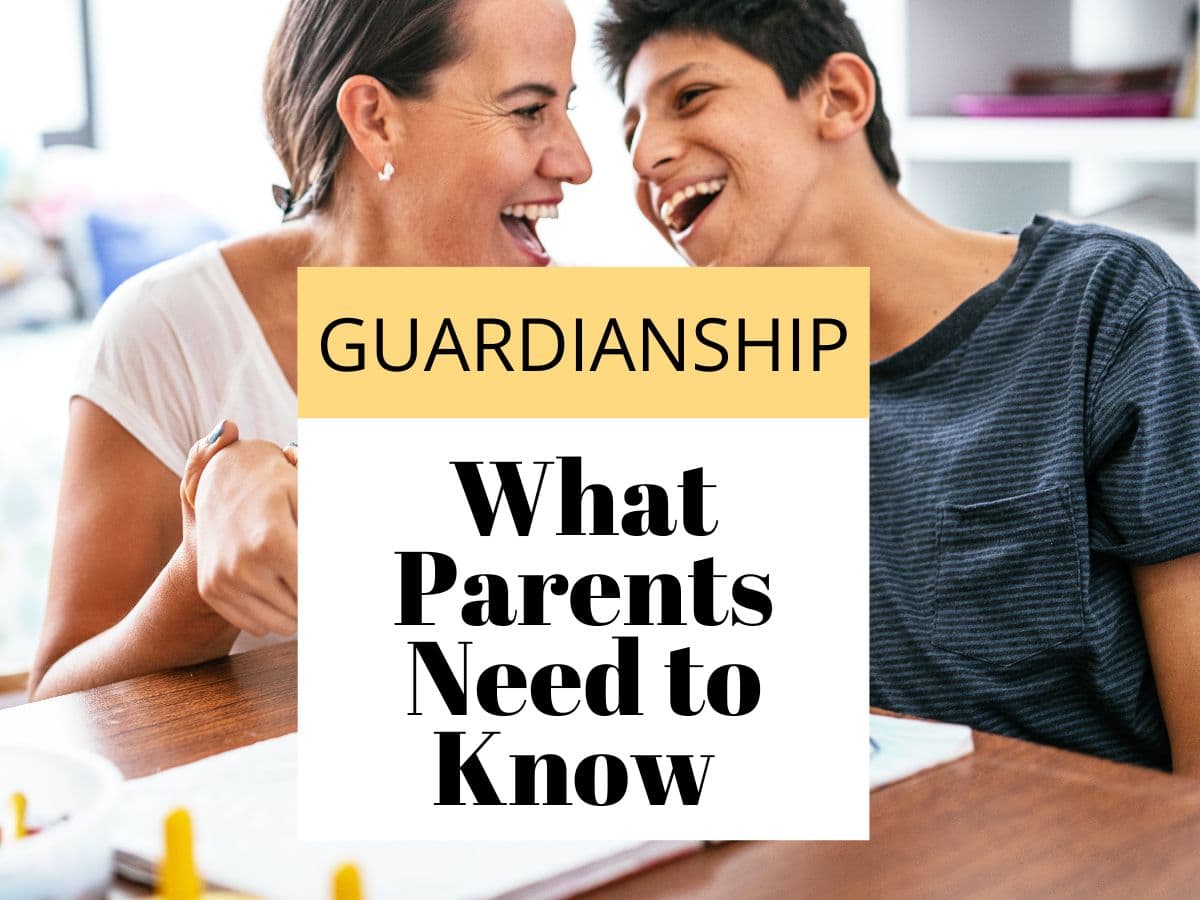Come November, we’ll officially have another adult living under our roof — our son is turning 18. Suddenly, the house is buzzing with words like guardianship and supported decision-making, Supplemental Security Income (SSI) and Social Security Disability (SSDI), and Special Needs Trusts. Am I ready for this? Probably not, but life has a funny way of not waiting for us to catch up, doesn’t it?

These days, I find myself becoming flooded with emotions — a bit of anxiety and worry creeping in, with some sadness tagging along. One minute, I’m getting all teary-eyed, thinking about the little towhead blondie I used to chase around the house in his diaper. Next, I’m wide-eyed at 2 am, fretting about what the future holds for my soon-to-be adult child.
I’m not gonna lie, I can already tell this adulthood thing is going to be a tough one. But as caregivers, we’re no strangers to tackling the hard stuff, right?
Guardianship is a heavy topic, but it shouldn’t feel intimidating. To help with that, I’ve broken the topic down into easy-to-digest bites. At the end of this article, you will find more helpful resources that will further help you with your decision. So, let’s dive in!
Here’s what you’ll find in this article:
While I’m no lawyer, I’m here to help you get on the right path. I know, there will be a ton of other things to consider before you land on what’s best for your family. This is just to give you a place to start. Remember, every state is different, so be sure to look up your state’s specific guidelines.
Types of Guardianship
Guardianship of the Person
This focuses on the day-to-day personal and healthcare decisions. The guardian ensures the ward is safe, healthy, and well cared for, which may involve making medical appointments, deciding on living arrangements, and sorting out their daily needs.
Guardianship of the Estate
This concerns managing the ward’s financial affairs. The guardian handles assets, pays bills, manages property, and makes financial decisions in the ward’s best interest.
Limited Guardianship
This is only authorized to make decisions in certain areas of the ward’s life.
Plenary Guardianship (Person and Estate)
This is authorized to make personal, financial, and healthcare decisions on behalf of the ward.
Determining if Your Adult Child Needs A Guardian
Not every adult with developmental and intellectual disabilities will need a guardian. There are less restrictive alternatives to guardianship (more on this later), but for others, guardianship is a must to ensure their safety and well-being.

So, how is the decision made if a person needs a guardian? The probate court will determine if a person is considered “incompetent” 1 based on the areas listed below. Using this list may help you determine if guardianship is the right choice for your loved one.
Can the person make:
- Living arrangements and dietary decisions
- Medical decisions
- Financial management decisions
- Decisions affecting their quality of life
- Crisis decisions
Navigating the Guardianship Process
1. Starting the Journey (Filing a Petition): The first step is to file a petition to the court, explaining why guardianship is necessary and providing information about you, the proposed guardian.
2. Court Checks In (Court Evaluation): Next, the court will send a professional (a guardian ad litem) to chat with everyone involved – that could be you (the petitioner), the adult child (the ward), and anyone else who’s important in their life. This person’s job is to ensure this is the right move for everyone involved.
3. Courtroom Conversations (Hearing): There’s a court hearing. You’ll present your case and evidence, and others may testify. It’s all about the judge deciding this is best for the adult child.
4. The Final Decision (Appointment): Legal documents are issued if the court approves the petition, and you’ll officially become the adult child’s guardian. This guardianship continues until the adult child can safely make their own decisions or until they pass on.
Pros and Cons
Pros
- Protection – The guardian is always there to keep the ward safe and sound. They’re making those big decisions to ensure everything’s okay.
- Support – The guardian can provide emotional and practical support to the ward, helping them live a full, more independent life.
- Finances – Bills, assets, finances – the guardian controls it. They have the person’s financial well-being in mind, ensuring everything’s paid on time and assets are safe.
- Medical Decisions – Guardians ensure the ward gets the care they need when needed.
- Legal Representation – A guardian will represent you in all legal matters, from signing contracts to standing up for you in court.
Cons
- Limited Rights – The ward will lose the right to handle their financial matters, healthcare choices, and even where they live. They will be in the hands of the guardian moving forward.
- Stigma – A bit of a stigma comes with adult guardianship. It’s like wearing a badge that says “I need help making decisions”. This can be a source of shame or embarrassment for the ward.
- Lack of Flexibility – Guardianship ends when you die or the court ends it. You can’t pass on guardianship of your adult child to a spouse or a surviving adult child.
- Responsibility – As a guardian, you’re responsible for caring for whatever the court hands you; failing to do so could bring legal consequences.
Alternatives to Guardianship
Before jumping straight into guardianship, my husband and I considered less restrictive paths for our son. Although we knew that guardianship was likely the best choice for his well-being and protection, we had an obligation to him to explore all the options.
Here are several less restrictive alternatives we found when looking into our choices. Of course, this is only a sample, but hopefully, it will help you get started.
Power of Attorney
With a Power of Attorney, a person can voluntarily allow another person to act on their behalf for financial, general, educational, and healthcare decisions.
Supportive Decision-Making
Individuals can retain their decision-making capabilities by choosing supporters like trusted friends and family members to help them make decisions.
Conservatorship
Like a guardian, a conservator makes decisions for the ward’s best interest but is appointed by the probate court at the request of a mentally competent adult who cannot manage certain areas of their life, making it a voluntary arrangement.
Representative Payeeship
A person or organization set up by the Social Security Administration to manage and distribute benefits for individuals unable to handle their finances.
Resources + Infographic
- Special Needs Alliance is a national organization of attorneys committed to the practice of disability and public benefits law.
- Contact your state or local county DDS, which could have guardianship resources available.
- Special Needs Answers is a network of financial planners and lawyers, providing resources on special needs planning.
- The Arc’s Center for Future Planning is an excellent resource for figuring out long-term care, finances, and all those legal bits for your loved ones.
- Charting the Life Course’s Tool for Exploring Decision-Making Support guides individuals and their supporters through each life domain to determine what decision-making supports they will need.

Final Thoughts
Choosing guardianship is not an easy decision. None of this is easy. Regardless of the choice you make, I believe we can all agree that our decisions ultimately revolve around love, protection, and making sure our loved ones have the best lives possible.
Are you considering guardianship or another alternative for your adult child? I would love to hear your story. Be sure to leave a comment.
SHARE ON:
- “incompetent person” means a person who is so mentally impaired, as a result of a mental or physical illness or disability, as a result of an intellectual disability, or as a result of chronic substance abuse, that the person is incapable of taking proper care of the person’s self or property or fails to provide for the person’s family or other persons for whom the person is charged by law to provide. Ohio Revised Code ↩︎


